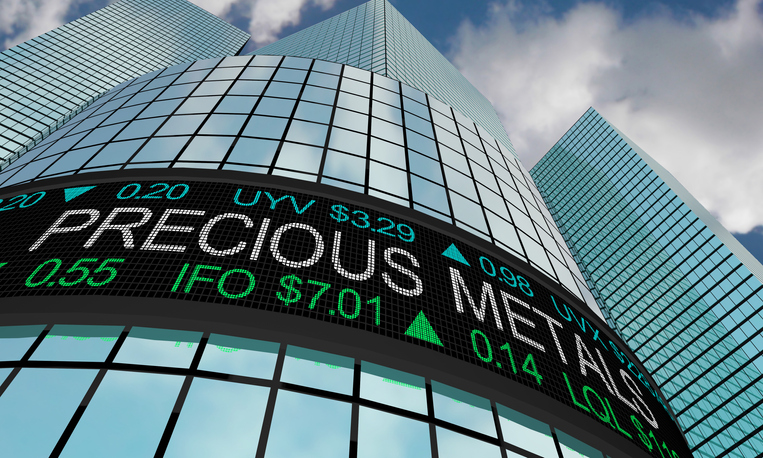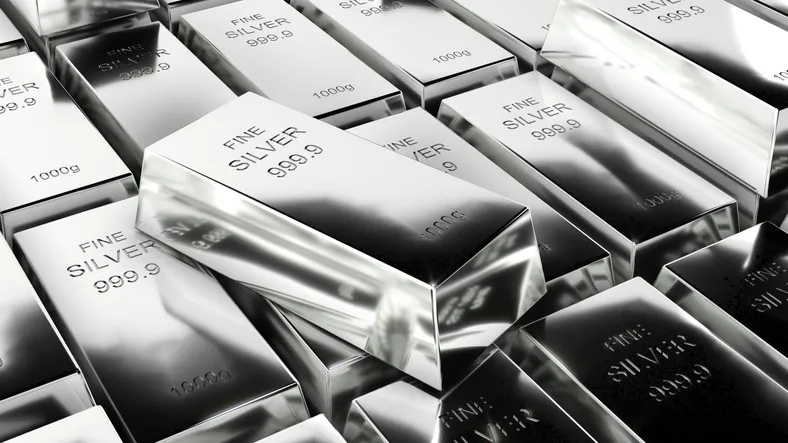A silver IRA is a self-directed individual retirement account that allows you to own silver and other precious metals in your portfolio. Investors sometimes use this type of account to hedge against inflation. There are pros and cons to consider before deciding whether this could be a good fit for your portfolio.
A financial advisor can help you break down the advantages and risks of a silver IRA for your retirement plan.
How Does a Silver IRA Work?
A Silver IRA is a type of self-directed individual retirement account that allows investors to hold physical silver as part of their retirement savings. Unlike traditional IRAs that typically contain stocks, bonds or mutual funds, a Silver IRA is designed to hold precious metals that meet specific IRS standards. The account follows the same basic tax rules as other IRAs, depending on whether it’s structured as traditional or Roth.
To open a Silver IRA, an investor must work with a custodian that specializes in self-directed IRAs. This custodian handles administrative tasks, reporting and compliance with IRS rules, but does not provide investment advice. Once the account is established, it can be funded through a rollover, transfer from another retirement account or a new contribution, subject to annual contribution limits.
Not all silver qualifies for a Silver IRA. The IRS requires that silver held in an IRA meet minimum purity standards and be in the form of approved bars or coins. After funding the account, the investor selects the silver they want to purchase, typically through a precious metals dealer, while the custodian executes the transaction on the account’s behalf.
Physical silver in an IRA cannot be stored at home or in a personal safe. Instead, it must be held in an IRS-approved depository that provides secure, insured storage. The silver remains the property of the IRA, and the investor pays ongoing storage and custodial fees for maintaining and safeguarding the assets.
Silver IRAs follow the same distribution rules as other IRAs. Withdrawals from a traditional Silver IRA are generally taxed as ordinary income, while qualified withdrawals from a Roth Silver IRA may be tax-free. If distributions are taken before age 59½, penalties may apply unless an exception is met, and required minimum distributions must be taken once they begin.
Types of Silver IRAs

Silver IRAs can be structured in several different ways, each with its own tax treatment, contribution rules and planning advantages. Understanding the main types of Silver IRAs can help investors determine how physical silver might fit into their retirement strategy and which account structure best aligns with their income, tax outlook and long-term goals. The differet types of silver IRAs are:
- Traditional silver IRAs: This account allows your contributions to grow tax-deferred, which means that you won’t pay taxes on your investment gains until you take that money out in retirement.
- Roth silver IRAs: Conversely, you pay taxes upfront for contributions that are made to this IRA and qualifying withdrawals in retirement are tax-free.
- SEP silver IRAs: If you are self-employed, this tax-deductible account allows you to contribute up to 25% of your compensation or $72,000 in the 2026 tax year, whichever amount is smaller.
- Rollover Silver IRAs: A rollover Silver IRA isn’t a separate account type, but rather a funding method that allows investors to convert part of their retirement savings into physical silver without triggering immediate taxes.
Pros and Cons of Silver IRAs
One of the main advantages of a Silver IRA is diversification. Physical silver does not move in lockstep with stocks or bonds, which can help balance a portfolio during periods of market volatility. For investors concerned about overexposure to traditional assets, silver may provide an alternative store of value.
Silver is often viewed as a hedge against inflation and the declining purchasing power of paper currency. When inflation rises or confidence in fiat currencies weakens, precious metals can sometimes hold or increase their value. This perceived protection is a key reason some investors allocate a portion of retirement savings to silver.
Like other IRAs, Silver IRAs offer tax advantages depending on the account type. Traditional Silver IRAs allow for tax-deferred growth, while Roth Silver IRAs may provide tax-free qualified withdrawals. These benefits can make holding silver in an IRA more attractive than owning it in a taxable account.
A significant drawback of Silver IRAs is cost. Investors typically pay custodial fees, storage fees and insurance costs that do not apply to most traditional investments. Over time, these expenses can reduce overall returns, particularly if silver prices remain flat.
Silver prices can be volatile, sometimes experiencing sharp swings over short periods. Unlike dividend-paying stocks or interest-bearing bonds, silver does not generate income, which can limit its usefulness for retirees who need regular cash flow. Returns depend entirely on price appreciation.
How to Invest in a Silver IRA
Investing in a Silver IRA requires working with a custodian that offers self-directed IRAs and permits precious metals. The custodian is responsible for maintaining the account, handling transactions and ensuring IRS compliance. Comparing fees, experience and service levels can make a meaningful difference over time.
Once the account is open, it can be funded through a rollover or transfer from an existing retirement account or by making new contributions, subject to IRS limits. Rollovers are a common approach, particularly for investors shifting assets from a 401(k) or traditional IRA. Following rollover rules carefully helps avoid unintended taxes or penalties.
After funding, investors choose the silver products to purchase, such as qualifying bars or coins that meet IRS purity requirements. The custodian typically coordinates the purchase through a precious metals dealer, but the investor decides which assets to buy. Not all silver products qualify, so attention to IRS guidelines is essential.
Physical silver held in an IRA must be stored at an IRS-approved depository rather than at home. These facilities provide insured, secure storage and handle the logistics of safeguarding the metal. Storage and insurance fees are ongoing costs that should be factored into the investment decision.
Bottom Line

Investing in a silver IRA can be a strategic move to diversify your portfolio and hedge against inflation. However, you should take note of the volatility of silver prices and additional maintenance costs to determine if it’s a good investment for your retirement portfolio.
Retirement Savings for Beginners
- A financial advisor can help you create a financial plan to protect your retirement assets from inflation and market downturns. Finding a financial advisor doesn’t have to be hard. SmartAsset’s free tool matches you with vetted financial advisors who serve your area, and you can have a free introductory call with your advisor matches to decide which one you feel is right for you. If you’re ready to find an advisor who can help you achieve your financial goals, get started now.
- If you want to figure out how much you will have for retirement, SmartAsset’s free retirement calculator can help you get an estimate based on your expected retirement age, annual income and retirement expenses.
Photo credit: ©iStock.com/Oselote, ©iStock.com/FG Trade, ©iStock.com/iQoncept
